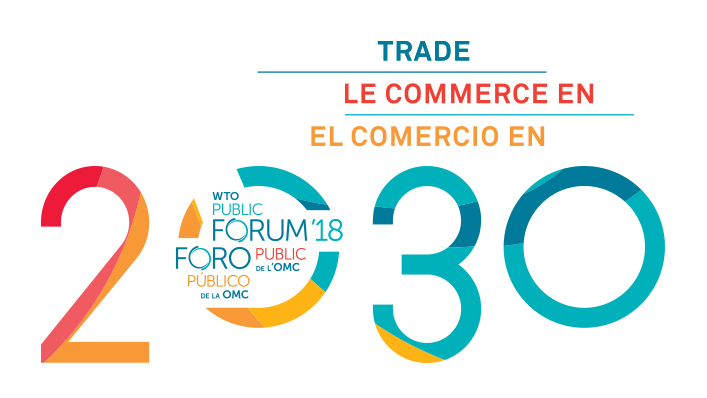E-commerce 2030: Enabling an inclusive future for e-commerce
2 Oct 2018 02:00h
Event report
The moderator, Mr Roberto Azevêdo (Director-General, WTO), welcomed the panellists and talked about how the lack of Internet access is a barrier to trade in many regions, especially in developing countries. He stressed the need for engaging in the debate and the importance of inclusiveness for the digital revolution. He also emphasised that the group of 71 member states of the WTO submitted proposals aimed at advancing exploratory e-commerce work.
Azevêdo also noted that the business community has a big role to play in addressing e-commerce and data flow issues. He said that there is still a gap between the developing and developed countries. He thanked the World Economic Forum (WEF) and asked their president to speak on cross-border e-commerce.
Mr Børge Brende (President, WEF) noted that this initiative is not the solution, but that it gives e-commerce the opportunity to evolve. According to him, there is inequality in debates and engagement in e-commerce, however efforts are being made to overcome this. Brende highlighted the role of the Centre for the Fourth Industrial Revolution, and said that they support public-private sector collaboration on e-commerce development priorities. He emphasised that we need to shape the fourth industrial revolution to benefit everyone and meet the objectives of the sustainable development goals (SDGs).
Mr Jack Ma (Executive Chairman, Alibaba Group) representing the Electronic World Trade Platform(eWTP) started his speech by thanking Azevêdo for the opportunity to participate in this event. He mentioned that in the last two decades in China, e-commerce was crucial in developing the country’s economy. Ma stated that globalisation and digital technologies have contributed to e-commerce, to the point that small businesses can now reach global consumers. E-commerce will be beneficial to 80% of the developing countries in 2030 and beyond.
We need to reform to create a more business-friendly future, and e-commerce needs WTO member states to decrease regulation to make global business thrive. According to him, inclusiveness gives small and medium-sized enterprises (SMEs) more opportunities to conduct effective business. The future rules should be driven by the business and private sectors. Finally, Ma noted that in order to make sure that e-commerce is developing, we need to build logistics, digital payments, and other aspects of infrastructure.
Mr Mukhisa Kituyi (Secretary-General, United Nations Conference on Trade and Development (UNCTAD)) noted that we need to advocate for digital trade and investment, and against the digital divide. He mentioned initiatives for entrepreneurial young people and their role in the digital economy. Kituyi also noted the positive impact of mobile money for consumers in Kenya. He said that leadership is very important to highlight the importance of e-commerce for developing countries. Connectivity without digital skills is a waste of opportunity.
Ms Frances Lisson (Ambassador and Permanent Representative of Australia to the WTO) said that they are developing national policies in order to make sure e-commerce is moving forward. She noted that the digital divide is still a reality in the Pacific region. She also noted that the WTO has a central role in helping tackle the challenges in e-commerce in developing countries.
Mr Robert Dufter Salama (Ambassador and Permanent Representative of Malawi to the WTO) said that the least developed countries (LDCs) face many challenges in e-commerce. According to Salama, there is a need to create jobs for young Africans, and this can be done by bridging the digital divide. In developing countries, the lack of power and electricity, which is a barrier to Internet access; a big gap in digital skills; and inadequate exchange of currency, are major roadblocks in front of e-commerce.
As an example, Salama pointed to the postal system in Malawi which is not well organised, and to the need for a master plan for Africa to tackle e-commerce issues. He concluded by stating that LDCs need to put in place information and communication technologies (ICT) capabilities to take better advange of e-commerce opportunities.
Related topics
Related event

